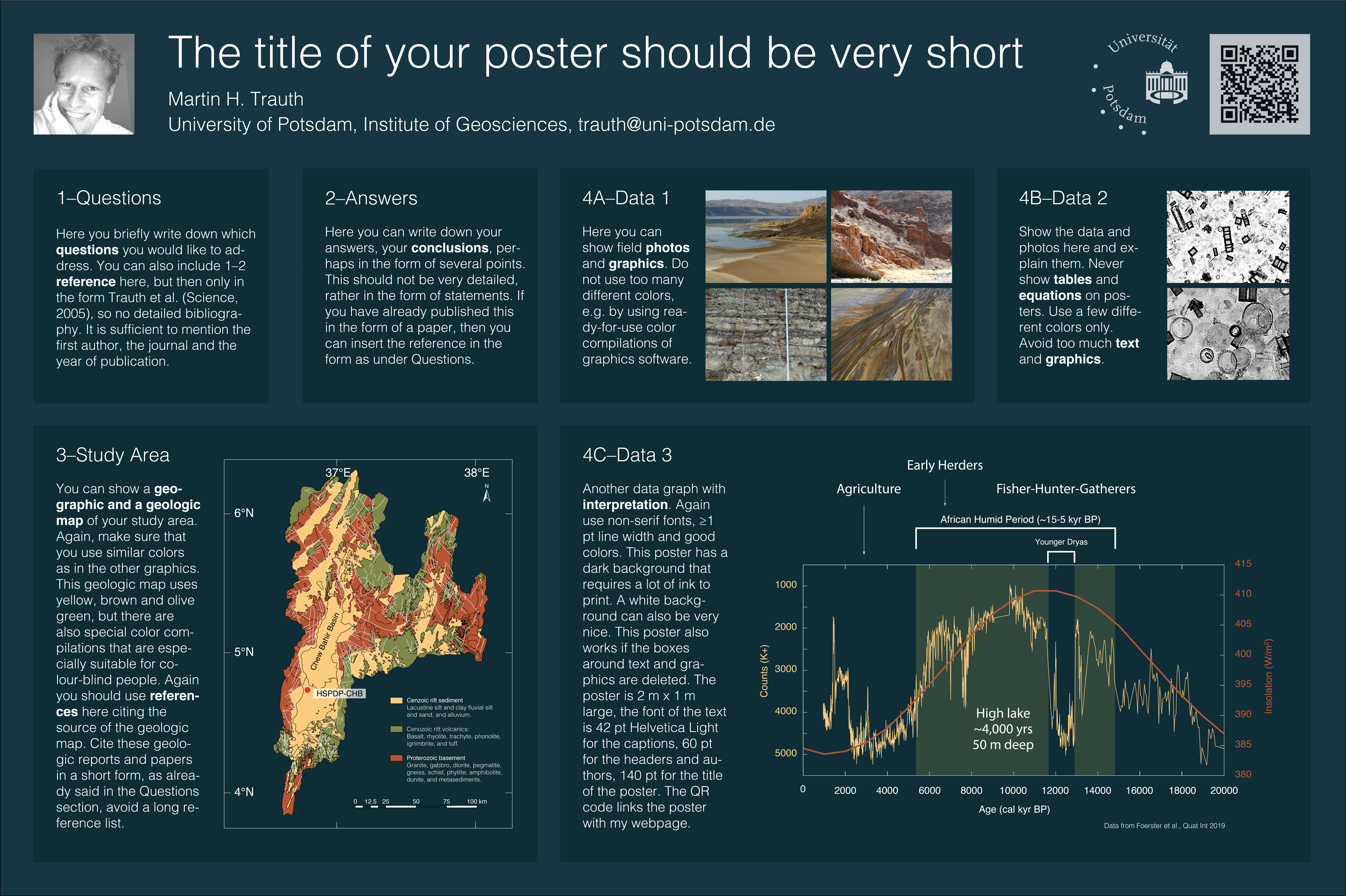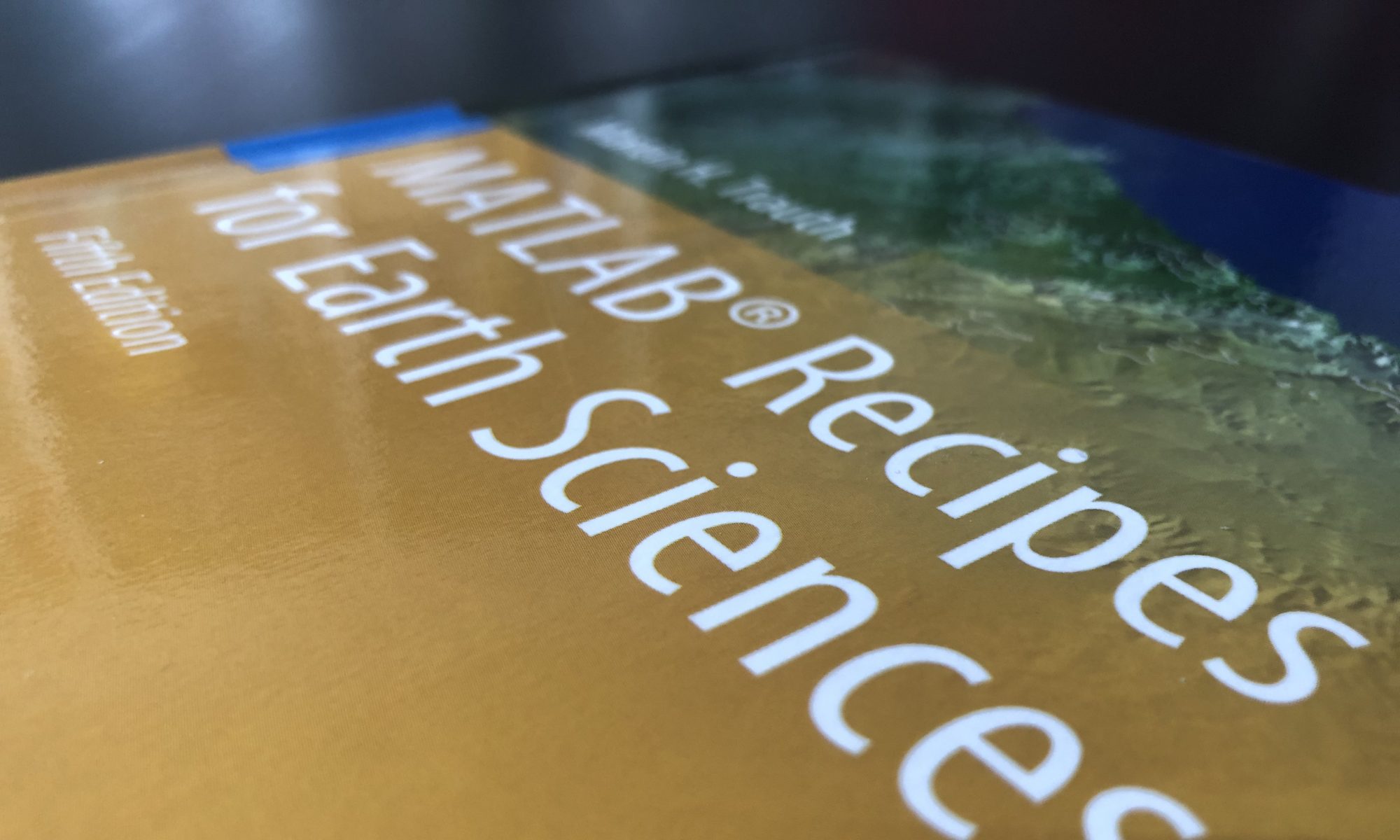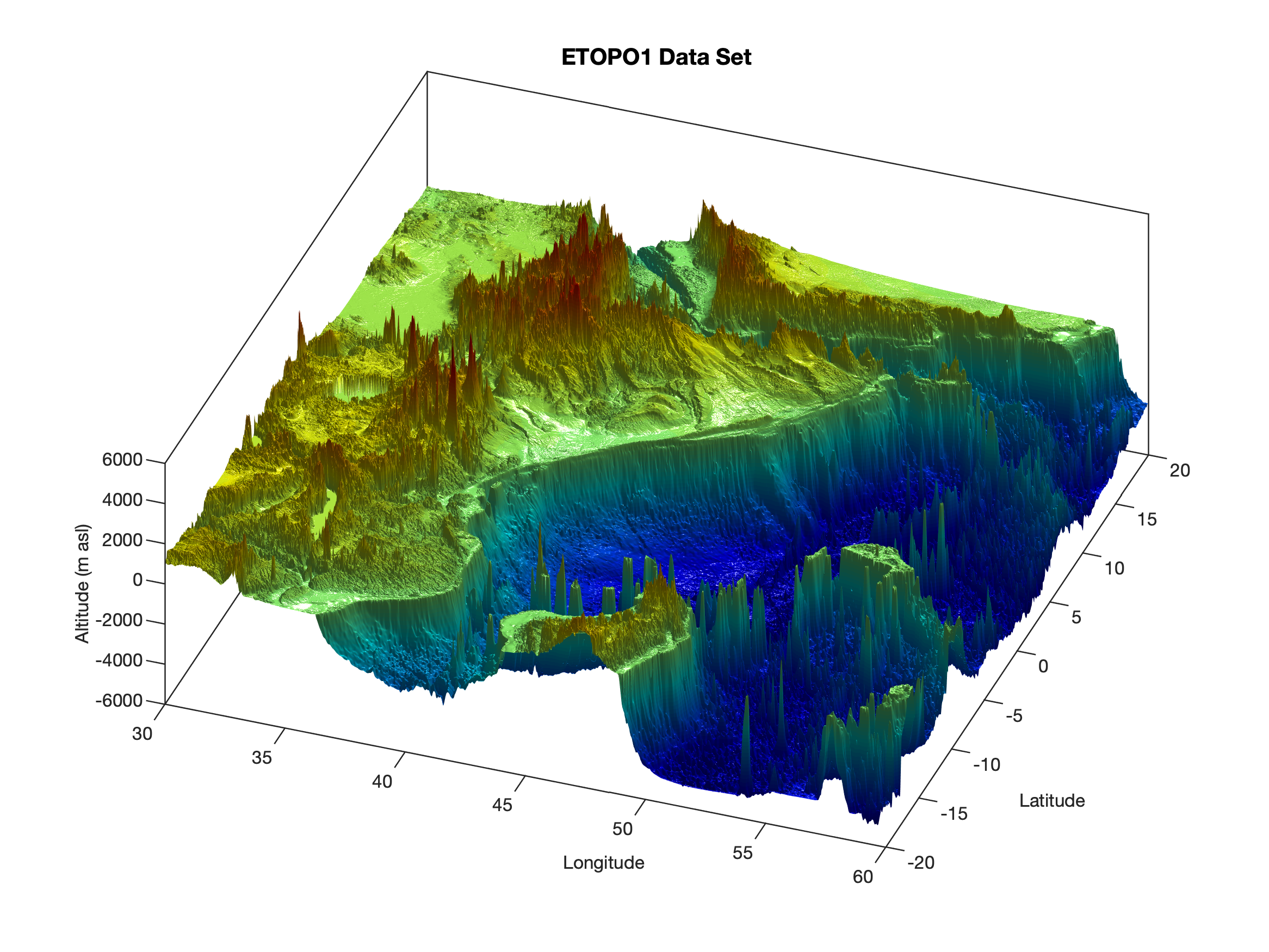Here you find the MATLAB code and data of my paper “TURBO2: A MATLAB simulation to study the effects of bioturbation on paleoceanographic time series” published in the Elsevier journal Computers & Geosciences. Continue reading “MATLAB Code of “TURBO2: A MATLAB simulation to study the effects of bioturbation on paleoceanographic time series” (Trauth, C&G 2013)”
Creating Better Scientific Posters, Part 3
 In two earlier posts, I presented templates for a conference poster with dark and white background. Here’s the white template in various formats. Continue reading “Creating Better Scientific Posters, Part 3”
In two earlier posts, I presented templates for a conference poster with dark and white background. Here’s the white template in various formats. Continue reading “Creating Better Scientific Posters, Part 3”
55th Online Shortcourse on MATLAB & Python Recipes for Earth Sciences
The popular online course on data analysis in the geosciences will be taught bilingual for the first time, using the two leading programming languages and development environments MATLAB and Python in parallel on 19–23 September 2022. The course is based on the 5th edition of my book MATLAB Recipes for Earth Science (Springer 2021) and on the new book Python Recipes for Earth Sciences (Springer, in press).
Continue reading “55th Online Shortcourse on MATLAB & Python Recipes for Earth Sciences”
German Translation of MATLAB Recipes for Earth Sciences Published
The German version of the 5th edition of MATLAB Recipes for Earth Sciences is out today. Thanks to the subject of SpringerSpektrum for the professional support in the realization of the project.
Continue reading “German Translation of MATLAB Recipes for Earth Sciences Published”
Creating Attractive 3D graphics with MATLAB and Python – A Competition!
While I was writing the new book Python Recipes for Earth Sciences, a Python version of my popular textbook MATLAB Recipes for Earth Sciences, difficulties kept cropping up in reproducing the MATLAB graphs. Either it took much longer with Python or the graphics were just less pretty. Of course, it’s up to me, a less experienced Python user, so I invite all Python users to do better! Continue reading “Creating Attractive 3D graphics with MATLAB and Python – A Competition!”
Data of “Bioturbational mixing depth and carbon flux at the seafloor” by Trauth, Sarnthein and Arnold (1997)
Here you will find the original data, tables and figures of the paper “Bioturbational mixing depth and carbon flux at the seafloor” by Trauth, Sarnthein, and Arnold, published in Paleoceonography in 1997. Continue reading “Data of “Bioturbational mixing depth and carbon flux at the seafloor” by Trauth, Sarnthein and Arnold (1997)”
New Paper About Plio-Pleistocene Climate Transitions in Africa published in Quaternary Science Reviews
A new paper by Nadine Berner, myself, and Matthias Holschneider shows a two-step transition in African climate at (2.35-2.10) Ma and (1.70-1.50) Ma associated with the reorganization of the Walker Circulation. Continue reading “New Paper About Plio-Pleistocene Climate Transitions in Africa published in Quaternary Science Reviews”
Vinyls, Compact Discs and the Nyquist Frequency
 Are you still buying CDs, or you just stream your music? Or, possibly you just got a vinyl record and wonder why it is gaining popularity again? A short lecture about sampling frequencies, aliasing and the Nyquist frequency with MATLAB examples. Continue reading “Vinyls, Compact Discs and the Nyquist Frequency”
Are you still buying CDs, or you just stream your music? Or, possibly you just got a vinyl record and wonder why it is gaining popularity again? A short lecture about sampling frequencies, aliasing and the Nyquist frequency with MATLAB examples. Continue reading “Vinyls, Compact Discs and the Nyquist Frequency”






